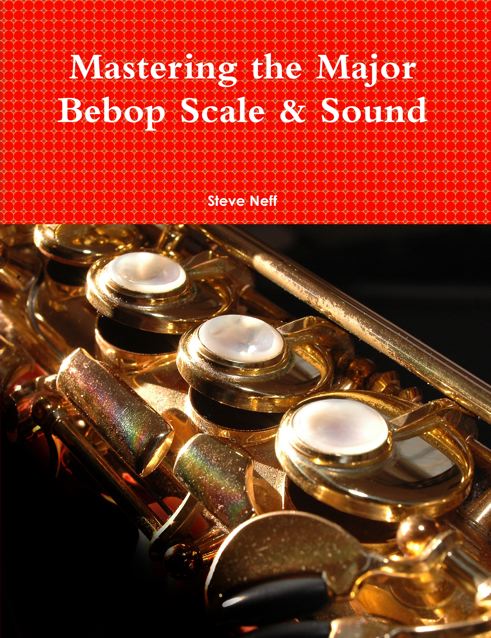Description
This is a cool lesson on a bebop scale I came up with that can be used on a minor ii-7b5-Vb9. I wanted to find a scale that I could use that would be similar to the dominant bebop scale but fit with the chord tones of a minor ii-V. I think this scale sounds pretty good. I have been working on it myself but thought I would share it with all of you. (Video, Audio & PDF)




Stuart –
This lesson has been very beneficial for me. I was handed a (rare) solo opportunity for a swing arrangement of Black Orpheus, which is totally minor ii-V-i. The concepts covered in the lesson, combined with the Best Minor ii-V Licks book, have given me a lot to work with. In fact, the licks makes a lot more sense now, viewed within the context of the minor ii-V bebop scale. I do hope there will be a follow-up lesson on this subject, similar to the other bebop scale lessons, covering links, rhythm patterns, resolutions, etc.
Steve –
Stuart, Thanks for the review. Glad the lesson was helpful! I wish I had it when I was younger because I always found minor ii-V-i progressions rough when I was younger. Glad I can help others…….. Steve
raghav (verified owner) –
Steve, very nice lesson. It will definitely help me sharpen my practice on minor ii-Vs. You asked the question on whether someone else has taught this approach. I’ve seen two pedagogical approaches, one that directly uses the same approach and one that suggests it. Jerry Bergonzi’s series of jazz improvisation, volume 3 (I think it is called the Jazz Line) works through the exact same scale on the dominant 7 flat 9 chord with the same passing tone. The other is a video masterclass that Walt Weiskopf does, where he suggests that the harmonic minor scale can be the basis for navigating minor ii-V’s, though he does not specify what the passing tones can be as he elaborates examples on the scale. I can send you a link to the Weiskopf lesson if you wish.
In terms of a wish list, as someone who is working through your dominant 7th workbooks, I would certainly appreciate a compendium of links that work on minor chords for reference (though part of me wonders whether I am being lazy and should just figure them out myself – after all, there are a ton of minor bop tunes out there to draw materials from). Thanks again.
Steve –
Minor chords are a bit more complicated than dominant in that you have situations where the 2nd degree and 6th degree are different. Sometimes you’ll have a D-7 with a Bb as the 6th. Sometimes a B. Sometimes you will have a Eb as the 2nd, sometimes an E. I was thinking of doing something more in depth for the minor ii-V progression as far as link though. Thanks, Steve